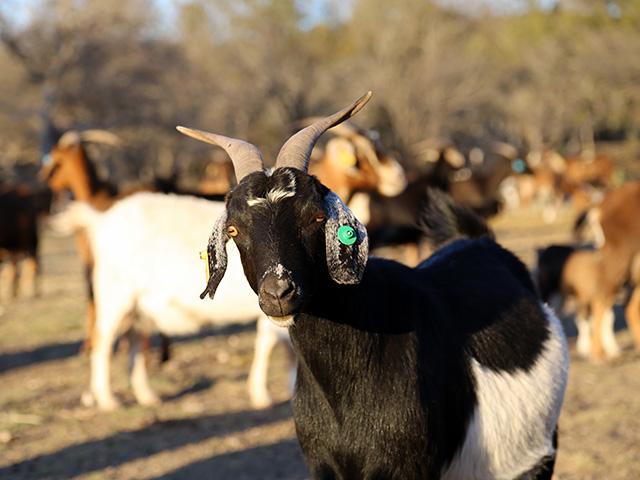Ask the Vet
Managing Worms in Goat Herds
READER QUESTION:
I live in Oklahoma, where I keep a few head of goats to help with weed control. I'm having problems with worms in these goats. I've used Cydectin, Ivomec and copper boluses, but it is an ongoing issue. What are your thoughts?
DR. MCMILLAN'S ANSWER:
The old saying goes that goats have two enemies -- parasites and predators. My friend David Pugh, who wrote "Sheep and Goat Medicine," says he thinks the ones the predators get are the ones too parasitized to get away from them. He is joking, but it's a fact that parasites kill more goats than predators.
If your veterinarian does not work with goats, find one who does. The American Association of Small Ruminant Practitioners may be a good resource for you. They can be reached at (419)-496-0696. I tell people that even if their goats are healthy, it's important to develop a relationship with a veterinarian before you need him or her.
P[L1] D[0x0] M[300x250] OOP[F] ADUNIT[] T[]
With intestinal parasites of sheep and goats, we need a new mindset. We need to talk about parasite management. The question "What is the best dewormer?" is outdated.
The worm most likely causing your problem is Haemonchus contortus or the barber pole worm. They are prolific blood suckers and egg shedders. On many farms across the country, these worms are resistant to every class of dewormer we have. That means we have to get very creative with this idea of parasite management. We can no longer deworm our way out of the problem. We must manage. Some key management tools I encourage producers to utilize include:
1. Pasture rotation. The more you rotate pastures, and the longer they can lay fallow, the more worm eggs die. Optimal rotation times vary by season, weather conditions and location. One study in Oklahoma showed benefits from a 60-day rotation.
2. Stocking density. It's important to have adequate land for the number of animals on it. A good goal is to keep grass at least 3 inches tall, which is proven to keep pastures healthier and more productive. Parasite larvae can only crawl 3 to 4 inches up a blade of wet grass. So, you don't want such a high stocking density that you force goats to graze below that level, as this exposes them to more parasites.
3. Species rotation. Rotating pastures with other species like horses or cattle can help "clean" pastures since the goat worm larvae they consume will die inside them.
4. Optimize nutrition. A complete and balanced diet really helps goats resist parasites and diseases. Always include a high-quality complete goat mineral and recognize the need for energy and protein supplementation at times. Be cautious with excessive grains, however, as this can lead to other serious issues.
5. Pasture species. Plant tannin-producing plants in pastures, including sericea lespedeza, birdsfoot trefoil and chicory. These contain high levels of tannins, which have been shown to reduce parasite numbers in goats. In addition, many of the vines, scrubs and weeds goats eat are high in protein and tannins.
6. Selective deworming. If you have never heard of the FAMACHA method, it's time you did. The idea behind this program is to only deworm the most severely infected goats. This is designed to maintain susceptible genes in the worms and to select for goats that are more naturally resistant to worms. Think of it this way: If every goat is dewormed, the only worms that survive are those that are resistant to the dewormer used. This makes these dewormers less effective over time. Also, by selecting not to breed those goats that repeatedly need deworming, you are building a herd with a more natural ability to be resistant to those parasites.
For more information, go to the American Consortium for Small Ruminant Parasite Control's website at www.wormx.info.
**
Editor's Note:
Please contact your veterinarian with questions pertaining to the health of your herd or other animals. Every operation is unique, and the information in this column does not pertain to all situations. This is not intended as medical advice but is purely for informational purposes.
Write Dr. Ken McMillan at Ask the Vet, 2204 Lakeshore Dr., Suite 415, Birmingham, AL 35209, or email vet@progressivefarmer.com.
(c) Copyright 2023 DTN, LLC. All rights reserved.






